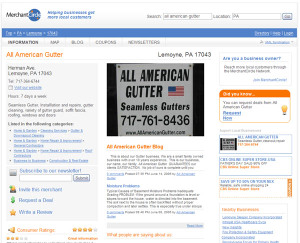I'm back
Yes, I'm back.
From vacation? Well yes, but that's not important. Wheel Media, the web design and marketing agency that is my j-o-b has been flying high, leaving no time for writing. But I'm managing the growth by finding really amazing people to join us, and that will bring me back to Leverage.
I was pointed to some great ideas from Paul Gillin in BtoB magazine (thanks to David Baker,) and without a lot of commentary I'll throw them out here:
"We hear a lot about blogs, but blogs aren't important. What's important is personal publishing, or the ability to communicate a message to a global audience almost instantaneously. Personal publishing will permeate electronic media, providing counterpoint to mainstream sources and adding depth and color to the conversation.
"We hear a lot about podcasts, but podcasts aren't important. What's important is time-shifted media. The phenomenon that started with TiVo has spread to digital audio and will soon capture portable video. Information consumers will no longer be beholden to program schedules or even their living rooms. Our TV shows will travel with us.
"We hear a lot about RSS, but RSS isn't important. What's important is the ability to subscribe to information that really interests us. RSS is mainly used to subscribe to blog posts and podcasts. But in the future, they will use it to subscribe to ideas."
Simple and smart food for thought.
...yet with all the talk about new Internet technologies I still find it odd that many small businesses don't understand the importance (i.e., the potential) of a website. Most entrepreneurs know everyone goes online to check us out before they call. It's a no-brainer. Yes blogs and podcasts and RSS are valuable communication and marketing tools, but often forward-thinking ideas like Gillin's make me look backward at the foundation-- a plain website with a 1980 design makes a poor first impression.
Anyway, I'm back. More news soon.






















